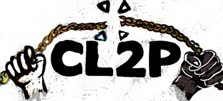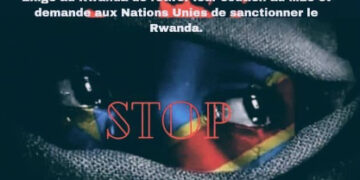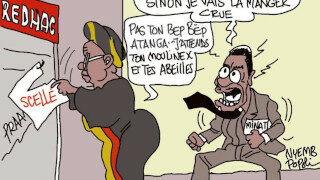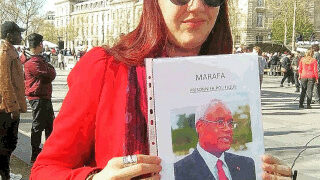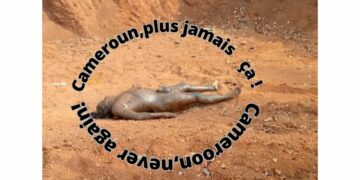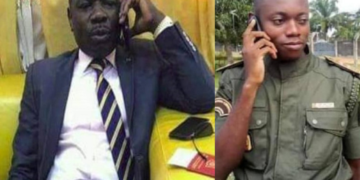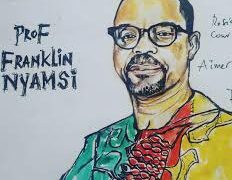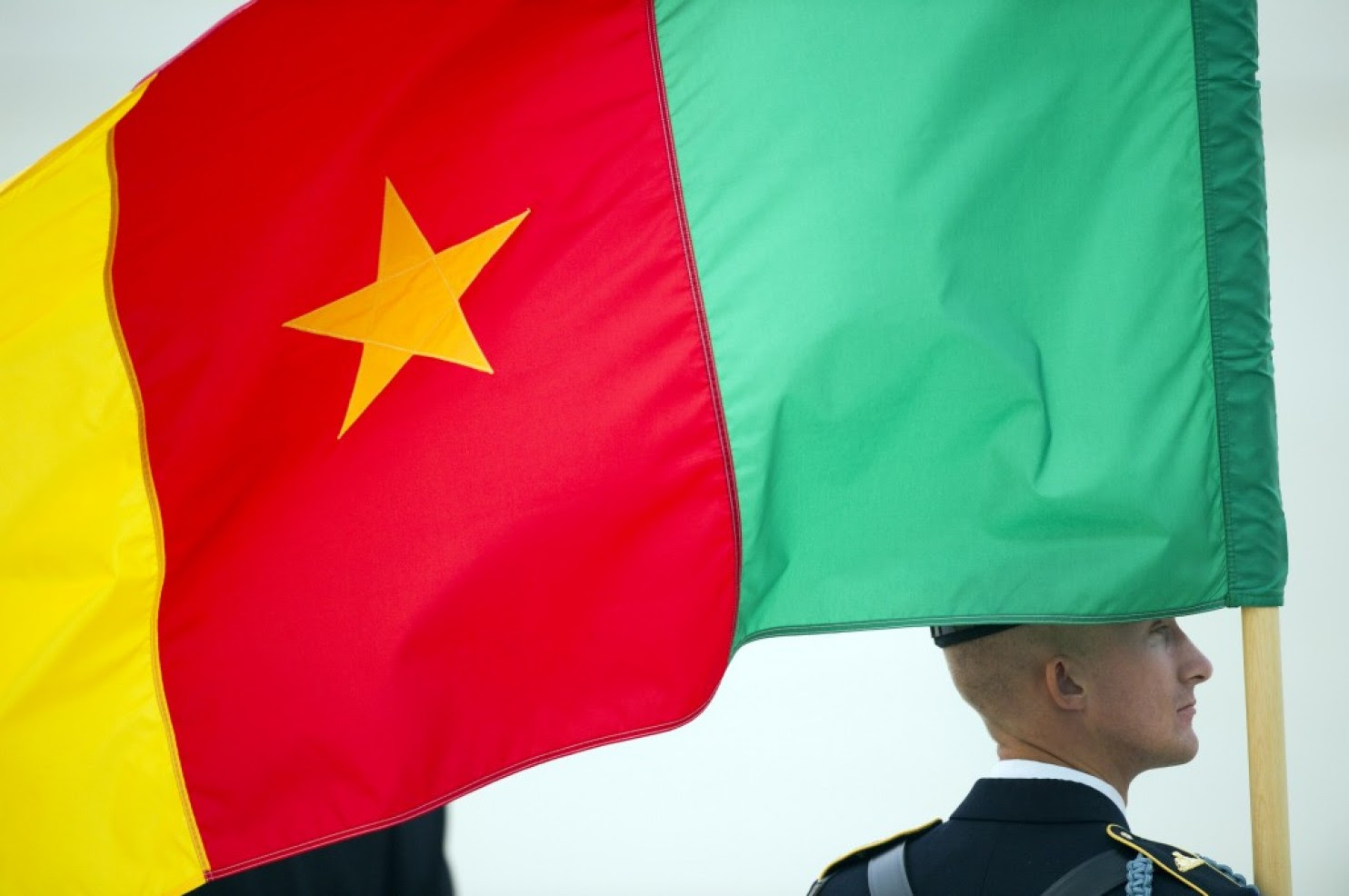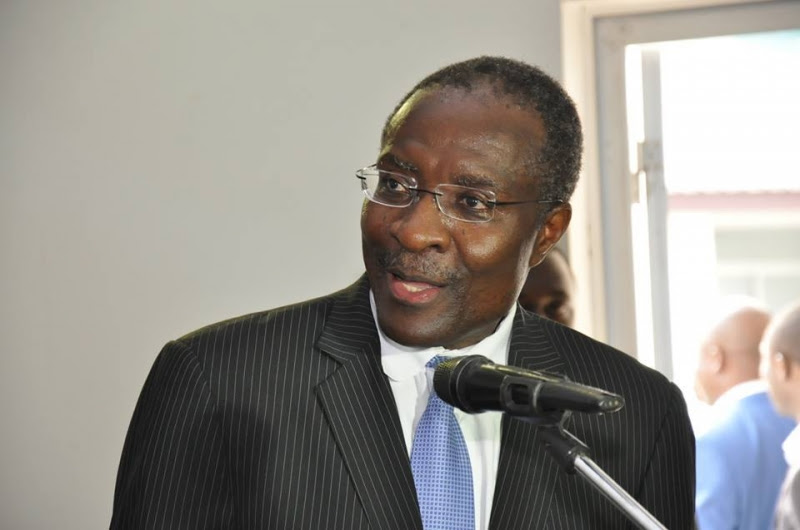Denis Foretia is co-chair of the Denis & Lenora Foretia Foundation and a senior fellow at the Nkafu Policy Institute.
What began as occasional protests in Cameroon by Anglophone lawyers and teachers’ trade unions in November 2016 has now transformed into full-scale civil disobedience. Cameroon’s English-speaking citizens constitute 20 percent of the total population of about 24 million. The oppressive response from the government has brought the country to a state of complete political paralysis. What happens next will have serious ramifications on the future and political construct of the country.
English-speaking Cameroonians of the Southwest and Northwest regions have a unique historical experience in the country. In the referendum of 1961 the region, previously under U.N.-mandated British trusteeship, voted to reunite with the French-speaking Republique du Cameroun to form a two-state federation. In 1972, contrary to strict constitutional provisions, the country’s first president, Ahmadou Ahidjo, orchestrated a referendum that changed the governing system into a unitary state with ensuing hyper-centralization of decision-making in Yaounde, the nation’s capital. Twelve years later, President Paul Biya, now 84 years old and in his 35th year of power, changed the country’s name from the United Republic of Cameroon back to the Republic of Cameroon, further alienating the Anglophones who were already being seen and treated as second-class citizens.
Cameroon today suffers from entrenched poor governance across all sectors, but the Anglophone marginalization is particularly pronounced. Of the 36 government ministers who control departmental budgets, only one is an Anglophone. Despite constitutional stipulations, the use of English barely exists in government administration. French-speaking teachers who barely understand English are sent to teach in Anglophone regions. Magistrates trained in French civil law, with no knowledge of the English language, are sent to administer the law to an English-speaking population that practices British common law. Anglophone teacher trade unions as well as lawyers have vehemently opposed this government-driven francophonisation of their communities. It is not the first time they have protested, but this time the challenge is different. Today, the entire Anglophone population is irate and speaks with one voice.
The government’s response to the peaceful protests and civil disobedience has been true to its Jacobin teaching of total repression: the arrest of Cameroon Anglophone Civil Society Consortium leaders who are now accused of acts of subversion punishable by death; the arbitrary arrest of more than 110 English-speaking Cameroonians; the curtailing of civil liberties, especially freedom of speech; and the alleged rape and torture of university students by some members of the security forces. Many Anglophones have been killed and many others have fled the country. In an act of desperation, the government has shut down the Internet to the English-speaking regions, for two months now, as a last resort in preventing the spread of civil disobedience to the French-speaking regions.
The fight against the Islamic sect Boko Haram in the three northern regions, as well as the very porous borders in the East region with the Central African Republic, have created an extremely tenuous security situation. Conflict in the Northwest and Southwest means six of the 10 regions will face security challenges. National revenues and foreign exchange have dropped significantly in recent years, driven by low oil and commodity prices worldwide. There is growing pressure from the International Monetary Fund to devalue the currency and will likely result in the implementation of austerity measures that would undoubtedly be opposed by the predominantly young population. For a country with 62 percent of its population under the age of 25, this potential demographic dividend is far from being achieved.
The politics of fear and iron-fisted rule, a government specialty, has been completely crushed by Anglophones with Francophones taking full notice. State-citizen relations have been dramatically altered in a way similar to that of East Germany just before it collapsed in 1989. It is becoming increasingly questionable whether elections scheduled for 2018 will be possible.
Cameroon faces a historic opportunity to transform itself into a pluralistic, democratic, broad-based market economy where diversity is at the core of its raison d’être. It can choose to be a country where open, frank debates are celebrated, as demonstrated in Ghana, not one where countless presidential decrees are the norm. A federalist governing system, perhaps a 10-state federation, is the surest way to resolve these crises while simultaneously enhancing national unity and well-being. Cameroonians must continue to fight for this. Will the Biya government see the writing on the wall or will it, by being incapable of changing, continue down its repressive path with the consequences that abound?
